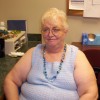Developmental Psychology Says Your Childhood Effects Your Adulthood
According to Eric Erikson and his stages of development which is the Bible to developmental psychology your childhood has a big effect on your adult life. Erikson believed that each stage of development had critical task that needed to be accomplished successfully for an individual to progress successfully to, and through later life stages. Based on that assumption then early childhood has a very big effect on your adult life. The first stage in Erikson's developmental stages was of course infancy (the first two years of life) and the critcal task was to develop basic trust. People who did not develop basic trust developed mistrust which influenced later relationships with other people. The second stage (2-4 years old) was to develop autonomy instead of shame and doubt and had a lot to do with learning bodily control. Again being full of shame and doubt would negatively impact later relationships. Therefore, Erikson believed that if you had not successfully accomplished the tasks of your earlier stages you needed to readdress these in therapy in order to be able to develop effective relationships. All that is said to poise a question how much effect did you earlier development have on your current adult relationships? In my case it was only after entering a 12-step recovery program for my addiction to alcohol and prescription diet pills, subsequent therapy, and years of spiritual growth that I was finally able to develop a healthy long-lasting relationship.
I beg to differ. Although Erikson's psychosocial stages is well accepted among developmental psychologists, it is not considered like a "bible." Developmental psychologists stress a holistic view of development - biological, cognitive and socioemotional. Although Erik Erikson dominates the socioemotional aspect of development, Kohlberg's theory of moral development is also well-respected. Plus, there are other critical factors for socioemotional development. Parenting styles and temperament are some of those.
Perhaps it is better to rephrase the question instead into "How much do you attribute your childhood experiences to your current adult romantic relationship?" I have placed "romantic" because there are other types of relationships, and I see from your post that you are also referring to this.
Now to answer the rephrased question - 20%. Although I am basically the same, I admit that many things have changed.
I am a staunch believer in this theory which should not even be a theory.
If you live through any trauma it does affect your adult life.
Not because it is intentional, but because of the way the primordial brain reacts. I often was teased for having a disability. Since I was only eight and did not fight back, I internalized all of this. It came back to haunt me as an adult by trying to please others. Or by acting out with out warning.
I also felt shame when facing my friends because they were "normal" and I wasn't. I still feel some shame (though I am not sure why) but I think I can work it out. I don't have children, but I have watched many children and taught
preschool, I know I would have made a good mother.I am no expert, but I have to say I dispute the statement that Erik Erikson is the Bible for developmental psychologists
- Ghost32posted 15 years ago
0
Kind of hard to say for sure when the stages under discussion did (or did not) take place during those early years--because how in the dickens can you know if you completed the task or not? Unless you have perfect early childhood memory, and I don't know anyone who does.
In my case, I'm the eldest of 3 children raised by parents who had a remarkably solid and seemingly well balanced marriage of more than 52 years before my father passed. You'd think I SHOULD have at least had the opportunity to complete those tasks as they popped up. Yet it took me six divorces and two bankruptcies before I finally "settled in" with my seventh wife. (Pam and I are now in our 14th year together and definitely still hooked at the hip.)
Maybe some of us are just too bullheaded and REFUSE to complete each critical task as it comes up? In my case, that would certainly explain things!
Basically, the first stage: trust versus mistrust is based on how "responding" your primary caregiver is to you. If your primary caregiver don't respond to your needs well, then you develop mistrust to the world. If, however, your primary caregiver is responsive, then you will develop trust. Of course this is not a black or white thing, because it is also healthy that one develops a sense mistrust, as one should not always trust, although Erikson maintained that the trust factor should outweigh mistrust.
The second stage is autonomy versus shame and doubt. In order to exercise "free will", one must need to develop a sense of trust, not only to the world, but also of one's self. This goes to show how developmental tasks are carried out step-by-step, i.e., no one can skip any stage. Asserting independence develops with less-restraining and more-encouraging care-giving.
There are other stages, and the tasks go up to old age. Yet the importance of caregiving is well highlighted during the first early stages. So anyone can argue from this that developmental problems can be pointed back to the caregiver.
Although Erikson's psychosocial stages (as it is formally known) is comprehensive and compelling, data in which Erikson based his theory are oftentimes criticized, All of them were made from case studies, and we know the strengths and weaknesses of this research method. Moreover, there are other factors that affect one's development, so merely looking at one theory is not enough to understand one's "relationship status."
hi scowan is there anything said about later on in childhood re. the parts we can remember? Just curious about this and thought you might have the information on it.
- R.G. San Ramonposted 15 years ago
0
Gee, for less than a handful of people who seem to be interested in developmental psychology...
I have written a series on this, although I'm still on my way to publishing them - Middle Age and Old Age are left hanging, all of them are interlinked, so it's better to publish them altogether. I am planning to shift platform for writing, because my adsense account is currently disabled (appeal underway), so I might as well publish the finished ones until then. Just go to my profile. The title of the hubs are as follows:
How do we develop?
How do children grow?
Who is an adolescent?
Early adulthood is offline, so sorry for those who are interested. this guy is not genius in the pshycological world, in fact he is a thief. Did not Freud theorise this before?
Here is a wasted topic and a complete waste of time. I'll leave it at that.

- Crazdwriterposted 15 years ago
0
I remember having to learn about Eric and all of this is in my child development classes. Quite a lot of interesting information.
But I found learning about Freud more interesting... Yes, my childhood was unadulterated torture. But after a while you have learn that you're no longer a victim, and take responsibility, make yourself safe, and figure out how to be healthy physically, emotionally, and spiritually. It's at that point that I think I was able to start making sense of any relationship. It's been a long journey, but it's been worth the effort to heal and make sense of life.
I think our childhood does effect how we view the world and relationships, but it certainly doesn't have to determine our lives and the outcome of everything in our lives.
As for psychologists, shrinks, etc., I've gained some important insights from some good ones. However, they are extremely few and far between and so many cause as much or more damage than they do in providing help. Erikson's take may be beneficial in some ways, but certainly, his perspective is "colored" through his own misperceptions and filters, as are most.there are others who studied early childhood development and how it affects our growth as an adult.
Abraham Maslow's hierarchy of needs applies well not only to infants, but as adults. many adults are still on the bottom, never reaching the next levels.
Jean Piaget also is great to study. He studied and wrote about the four stages of cognitive development.
childhood definitely helps 'define' who we are as adults and while some benefit from therapy, sometimes it's a complete waste of time and money and makes people worse because now they're focused on their dysfunctional childhood.
it's good to look at an aspect that may be holding someone back, but not to dwell on every detail of what happened. each day is new, we don't have to be trapped by our past.
if we want to look at childhood, you can also look back at those things that made you happy and incorporate them into your life as an adult. even playing with play dough could translate into using your hands to create something. if you liked to swing and play on a playground, then get outside and play, run, jog, ride a bike... etc.
Just published the first chapter of my autobiography and I can say with certainty that early childhood memories can effect you in adult hood

very much so. those things that gave us happiness as a child helped us in many more ways than giving us momentary happiness.
when recently writing a hub about 'finding' happiness and what gives me happiness now, I became very aware that it all began in childhood.
ok, i don't get this when I consider my own childhood.
My older sister trusts people but not situtuations
I don't trust situations but trust most people until I have a reaason Not to trust
how can this be when we obviously had the same mother?Hey Rafini,
My sister and I had the same mother. My sister is a selfish b!tch and I'm not selfish.
My sister has no understanding of the word family.
And, I pride myself on it.
Go figure?
I think I can relate to what you're saying.

- lynnechandlerposted 15 years ago
0
I have a question too. I was raised very independently that is to say I was not coddled. If I'm reading this right that is why I am happier out of a relationship than in. Is that right?
- lynnechandlerposted 15 years ago
0
Curious as my sister and I are like this too. She is seven years my senior and was an only child during those early years. She is also very materialistic where as I just kind of go with the flow. This is all very interesting.
I'll agree with you Lynnchandler. My sister is very materialistic too and I'm like you, kind of go with the flow, as you put it.

There is only 1 year and 10 months between us, tho.
my sister and I are 14 1/2 months apart, dont know if she's materialistic or not (lol) but i'm with you guys - go with the flow.
because we're all different even though raised in the same environment (brothers and sisters), how we perceive things is different. families go through different stages affecting the child also. I'm very different from my brothers and sisters.
sometimes birth order has to do with it also.
if the infant doesn't learn trust in those early stages, relationships can be more complex.
Related Discussions
- 3
who are those studied developmental psychology and what are their principles
by moigurl 14 years ago
who are those studied developmental psychology and what are their principles
- 265
Can you really have a relationship with someone you don't trust.
by ShanteD 7 years ago
Can you really have a relationship with someone you don't trust.You can love them and want your relationship to work but if you don't trust them can it? Do you give it time and hope for the best?
- 25
How can you say you really love someone if you don't trust them?
by lisasuniquevoice 8 years ago
How can you say you really love someone if you don't trust them?
- 3
Developmental psychology is a fascinating topic. Care to write a hub (or several
by Susan Reid 13 years ago
Developmental psychology is a fascinating topic. Care to write a hub (or several) on it?
- 31
I am sure we all have been betrayed by a person whom we believed to be a trusted
by Faith Reaper 9 years ago
I am sure we all have been betrayed by a person whom we believed to be a trusted friend, but ...All of us, I am sure, have felt the pain of betrayal from a trusted friend, or one whom we believed to be a friend, but have you forgiven this person yet? I know it is a very painful thing to have...
- 17
What strong childhood hobbies or interests have you taken into adulthood?
by Andrew Spacey 11 years ago
What strong childhood hobbies or interests have you taken into adulthood?We all have some hobby or interest that we 'get into' when we're young but have you continued with anything specific that has a definite grip on you? Perhaps you turned a hobby into a job or an interest became a vocation?...
















